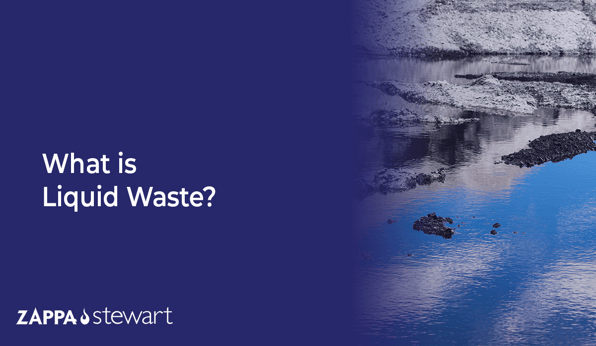Not known Details About Reclaim Waste
Not known Details About Reclaim Waste
Blog Article
Not known Details About Reclaim Waste
Table of Contents6 Simple Techniques For Reclaim WasteA Biased View of Reclaim WasteReclaim Waste Can Be Fun For EveryoneThe Main Principles Of Reclaim Waste The Single Strategy To Use For Reclaim Waste
Residential sewage waste refers to the waste and products from a residential septic storage tank. The proper monitoring and disposal of domestic sewage waste call for fluid waste to be transferred to a sewage treatment plant where the appropriate techniques and equipment are applied to detoxify and dispose of waste.
Business waste frequently consists of prospective threats, such as combustible materials or a mixture of fluid and strong waste items, and calls for an extra advanced and detailed disposal procedure. The disposal of business waste typically entails the filtering of waste before transportation to ensure safe and correct disposal. Industrial waste is developed from by-products and overflow of industrial processes and manufacturing.
This kind of waste can not use the same sewer management transport or procedures as septic or business liquids. The hazardous waste management process needs the inspection and screening of liquid waste prior to it goes through the disposal process (liquid waste disposal). Drainage waste is the liquid waste that comes from overflow and excess stormwater in highly inhabited locations or cities
Drainage waste can trigger contamination and flooding if not handled correctly. Making certain appropriate waste monitoring can avoid disasters and minimize environmental injury.
Examine This Report about Reclaim Waste
Get in touch with PROS Services today to discover our waste management and disposal services and the correct means to care for the liquid waste you create.
(https://www.huntingnet.com/forum/members/reclaimwaste1.html)Do you know what takes place to your water when you disengage, flush the commode or drain the washing equipment? No? Well, it's worth knowing. This supposed 'wastewater' is not just a vital source yet, after therapy, will certainly be released to our land, waterways or the ocean. Made use of water from toilets, showers, bathrooms, cooking area sinks, laundries and commercial processes is called wastewater.

water made use of to cool machinery or tidy plant and equipment). Stormwater, a form of wastewater, is runoff that streams from farming and metropolitan areas such as roofs, parks, yards, roads, paths and seamless gutters into stormwater drains pipes, after rainfall. Stormwater flows without treatment straight to regional creeks or rivers, ultimately reaching the sea.
All about Reclaim Waste
In Queensland, the majority of wastewater is dealt with at sewer treatment plants. Wastewater is moved from domestic or industrial websites with a system of drains and pump stations, called sewage reticulation, to a sewer therapy plant. Regional federal governments build, preserve and operate most sewage therapy plants. Operators are licensed under the Environmental Management Act 1994 to release treated wastewater at an acceptable environmental requirement into waterways.
The Division of Natural Resources encourages city governments concerning managing, operating and maintaining sewerage systems and therapy plants. In unsewered locations, regional federal governments may need homeowners to install private or home sewage therapy systems to treat domestic wastewater from commodes, kitchen areas, shower rooms and washings. The Division of Natural Resources authorises making use of house systems when they are confirmed to be effective.
Many stormwater gets no therapy. In some new subdivisions, treatment of some stormwater to get rid of clutter, sand and gravel has begun utilizing gross toxin traps. Wastewater therapy happens in 4 phases: Removes solid issue. Bigger solids, such as plastics and other things wrongly released to sewers, are gotten rid of when wastewater is travelled through screens.
Uses little living microorganisms understands as micro-organisms to break down and eliminate remaining liquified wastes and great fragments. Micro-organisms and wastes are included in the sludge.
Everything about Reclaim Waste
Nutrient elimination is not readily available in all sewage therapy plants due to the fact that it calls for costly specialised tools. It is coming to be much more usual in Queensland. Clear fluid effluent produced after therapy may still include disease-causing micro-organisms. If this effluent is launched right into waterways such as rivers or the sea, the micro-organisms will at some point die out.

This typically indicates wastewater needs to be dealt with or impurities gotten rid of before it can be discharged to waterways. The majority of wastewater flows into the sewage system. Under the Act, city governments provide approvals and permits for ecologically relevant tasks (Ages) involving wastewater launches that could have a neighborhood influence. The department carries out authorizations and permits to ERAs including wastewater launches that might have a local or statewide impact.
Reclaim Waste for Dummies
Otherwise, examples are considered research laboratory analysis. Usually several tests are needed link to develop the degrees of each of the different toxins such as oils, hefty steels and chemicals in water. Tracking supplies accurate details concerning water quality and can validate that permit problems are being satisfied. The details gotten with monitoring gives the basis for making water quality decisions.
Report this page